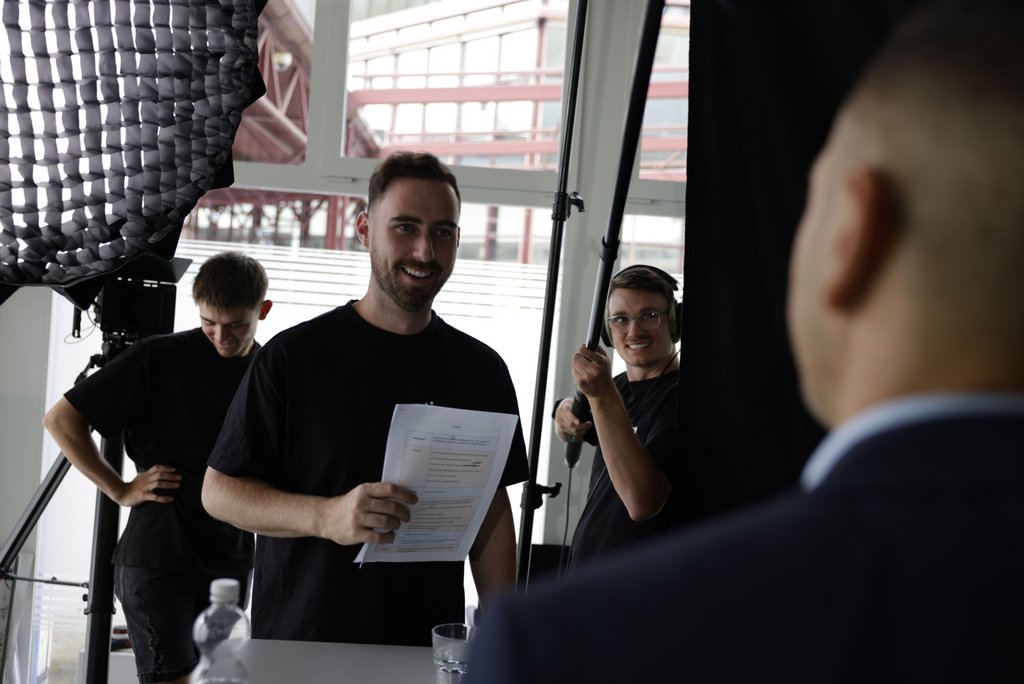Campus - 15.10.2025 - 10:00
"Once I've made my point in a meeting, I leave after ten minutes if I have nothing else to contribute on other topics. We want to avoid wasting time in meetings," says Erdal. The 32-year-old is a partner and one of the first employees of the creative and digital agency Tincan. Today, 34 people work for the agency in Zug and Zurich. It is structured according to the principles of holacracy. The aim of this form of organisation is agility instead of rigid hierarchies, efficiency instead of marathon meetings.
To this end, Tincan is divided into four so-called ‘circles’, each corresponding to a specialist area such as digital marketing or film and photography. Each circle has its own budget and is expected to work as independently as possible.
Clear roles and defined responsibilities for all employees facilitate this autonomy. Planned cross-departmental meetings only take place every two months; ongoing coordination is usually carried out using the project management software Asana.
‘Holacracy gives every single person in the team a great deal of freedom to make decisions and clear responsibilities,’ says Erdal. ‘I think our customers appreciate the short communication channels and fast implementation that are made possible by the high degree of independence of our employees.’
Holacracy was originally developed by an American entrepreneur who turned it into a training and software business. It aims to break down hierarchies, reduce bureaucracy and shorten decision-making processes. ‘We have been working with this approach for the most part since 2020. Of course, conflicts can arise here too, and depending on the project, there may be a greater need for coordination – but basically, holacracy suits our young team,’ says Erdal.
Tincan was originally founded as a film production company by Raphael Willi and Peter Niederberger, who both did their studies with Erdal. Today, the company serves clients such as SRF, the Canton of Zurich, Siemens and Zuger Kantonalbank, offering a wide range of marketing and communication services.
Erdal completed his master's degree at HSG in 2018. Two years later, in the midst of the pandemic, he left a secure job at Swiss Post to rejoin Tincan, which at the time had eight employees. ‘My parents were a little worried,’ he recalls with a laugh. ‘But I wanted to build something of my own with friends in a flexible team.’
After completing his bachelor's degree in media and film studies at the University of Zurich, the HSG master's degree was the ideal complement. ‘At HSG, I gained broad knowledge in business management, gained practical experience in projects and built up a valuable network.’
Tincan has been growing steadily since 2020. In 2025, two employees joined the team in Geneva. ‘Our goal is to implement national campaigns in all language regions in the future and to have a presence in different regions,’ says Erdal.
As the company grows, holacracy becomes more challenging, but the principle remains central: ‘Tincan was founded by friends, has grown organically and is rooted in our hometown of Zug. Having a say and participation by all employees, as well as short decision-making processes, have always been part of the agency's DNA.’ This also applies financially: all employees can purchase shares after two years. Erdal: ‘We believe that this model also helps to attract talent in the long term.’
HSG researchers Lena Rudolf and Jonas Friedrich are conducting intensive research on shared leadership, holacracy and democracy in the workplace. You can find out more about their research work here.
More articles from the same category
This could also be of interest to you
Discover our special topics
